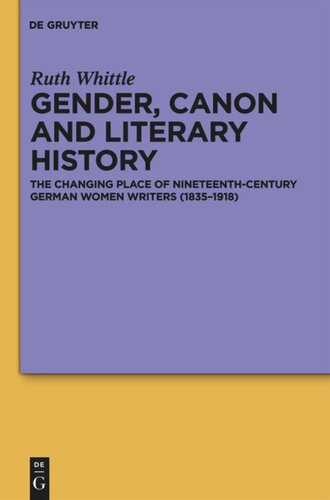

Most ebook files are in PDF format, so you can easily read them using various software such as Foxit Reader or directly on the Google Chrome browser.
Some ebook files are released by publishers in other formats such as .awz, .mobi, .epub, .fb2, etc. You may need to install specific software to read these formats on mobile/PC, such as Calibre.
Please read the tutorial at this link: https://ebookbell.com/faq
We offer FREE conversion to the popular formats you request; however, this may take some time. Therefore, right after payment, please email us, and we will try to provide the service as quickly as possible.
For some exceptional file formats or broken links (if any), please refrain from opening any disputes. Instead, email us first, and we will try to assist within a maximum of 6 hours.
EbookBell Team

4.8
84 reviewsIt has been shown that the total number of women who published in German in the 18th and 19th centuries was approximately 3,500, but even by 1918 only a few of them were known. The reason for this lies in the selection processes to which the authors have been subjected, and it is this selection process that is the focus of the research here presented.
The selection criteria have not simply been gender-based but have had much to do with the urgent quest for establishing a German Nation State in 1848 and beyond. Prutz, Gottschall, Kreyßig and others found it necessary to use literary historiography, which had been established by 1835, in order to construct an ideal of ‘Germanness’ at a time when a political unity remained absent, and they wove women writers into this plot. After unification in 1872, this kind of weaving seemed to have become less pressing, and other discourses came to the fore, especially those revolving round femininity vs. masculinity, and races.
The study of the processes at work here will enhance current debates about the literary canon by tracing its evolution and identifying the factors which came to determine the visibility or obscurity of particular authors and texts. The focus will be on a number of case studies, but, instead of isolating questions of gender, Gender, Canon and Literary History will discuss the broader cultural context.